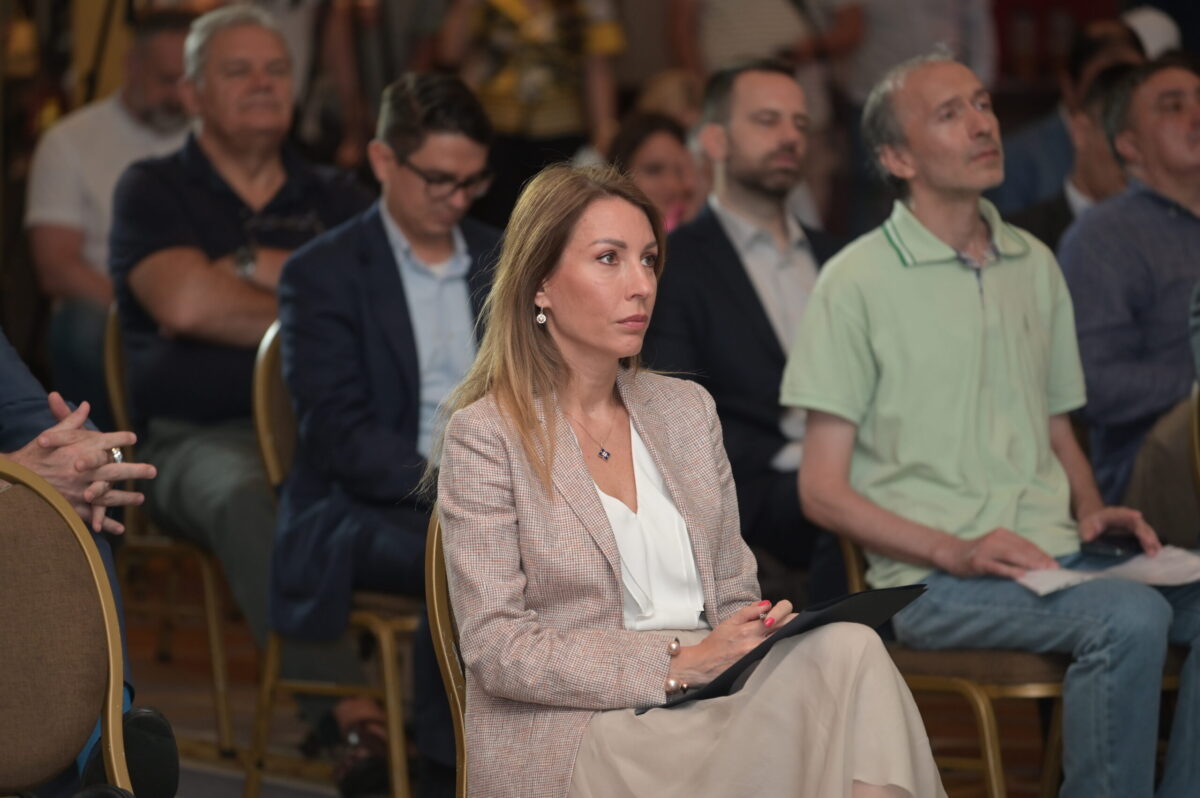Our will and willingness to work towards accomplishing energy and climate goals is firm and unquestionable

On 13th July, Color Media Communications organized the conference in Belgrade titled “Serbia Goes Green.” We are bringing you the opening speech of the Minister of Mining and Energy in the Republic of Serbia Government, Dubravka Djedović.
The question of ensuring energy security and energy independence, and at the same time, preserving and improving the environment, is a question that is crucial for the future of both Europe and our region. Economy and ecology are now more than ever connected and intertwined, so just as nature provides minerals and other resources from which we get electricity, everything that is done related to energy must be evaluated from the standpoint of environmental impact.
Serbia, as a country striving to become an EU member, shares Europe’s vision when it comes to its vision for the future of the energy sector, primarily in terms of striving for its decarbonization. The road to achieving that vision must be financially sustainable and socially just and must protect the industries and workers most affected by the energy transition.
With the integrated national plan for energy and climate of the Republic of Serbia, covering the period until 2030 with projections until 2050 and the drafting of INEKP (Integrated National Energy and Climate Plan), which is currently being discussed by the national MPs, Serbia put its money where its mouth is when it comes to blazing our trail in the energy transition, i.e. setting are our priorities, defining the steps and sequence of activities, determining required funds, etc.
Together with the Energy Development Strategy, which covers the period until 2030 with projections until 2050, this will be the framework of Serbia’s new energy policy, oriented towards the future, to ensure energy supply and energy independence under the most favourable conditions for our citizens and businesses and sustainable, efficient and economical management of the decarbonization process.
The key goals will include increasing the share of RES in electricity production to 45%.
To achieve the targeted goals by 2030, we have defined a total of 156 measures that INEKP contains, of which 68 pertain to reforms. We have also defined priority areas for investments in new production capacities, which envisage the construction of around 3.4GW of solar and wind power plants, as well as the construction of a new gas power plant.
It is up to the Ministry of Mining and Energy to continue to improve the regulatory and investment framework
Our investment priorities related to the process of decarbonization, but also to all other segments of the energy sector, are stated in the baseline of the plan for the development of energy infrastructure and energy efficiency for the period up to 2028 with projections up to 2030, which was adopted by the Government of Serbia and includes, among other things, construction of the Bistrica reversible hydroelectric powerplant, overhaul and revitalization of the Djerdap 2 hydroelectric power plant, consideration of the financial and technical profitability of the Djerdap 3 reversible hydroelectric power plant project, construction of the Kostolac wind farm and solar power plants of 1GW capacity.
It is up to the Ministry of Mining and Energy to continue to improve the regulatory and investment framework, as it did with the Law on the Use of RES, as well as with the amendments to the Law on Energy. We will work to stimulate the development of RES and continue having a dialogue with the business sector on how to overcome and prevent the challenges related to the Carbon Border Adjustment Mechanism.
In September, the public call for market premiums for the new 450MW capacity for the production of sun and wind-generated energy will end and our three-year plan foresees 1,300 MW of new capacity generated by RES. Through subsidizing energy efficiency measures in households and stimulating citizens and small businesses to become their own electricity producers, we want to encourage as many citizens as possible to become active participants in the energy transition.
Our will and willingness to work towards accomplishing energy and climate goals is firm and unquestionable. We believe that our goals are both ambitious and realistic when we know what our starting position is regarding the participation of coal in the energy mix and when we know that we do not have available funds that the EU provides to its members in the energy transition process.
In order to have successful decarbonization and green transition, it is very important that, like the EU members, we have strong and continuous support from the European Union, international partners and financial institutions.